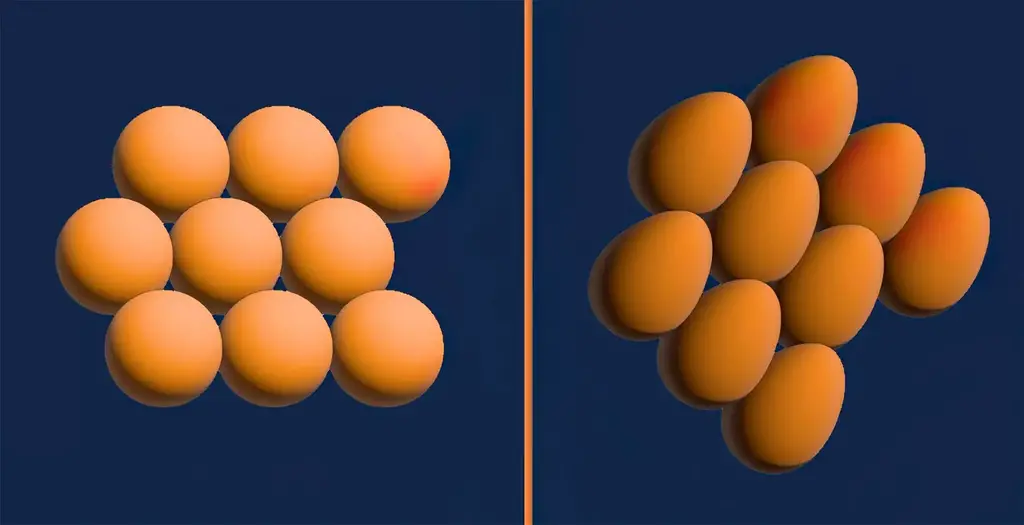A group of researchers at the University of Illinois Urbana-Champaign have discovered a new phase of high-pressure solid hydrogen through the use of machine learning. The research offers new insights into how hydrogen behaves in extreme conditions and the composition of planets such as Saturn and Jupiter. Hydrogen is the most prevalent element in the universe, and it is also found on Earth. David Ceperley, a physics professor at the university, believes that hydrogen is a natural element to study and test theories of matter.
The researchers came up with a machine-learning technique that could allow quantum mechanical simulations, and it was used to discover a new kind of high-pressure solid hydrogen that past theory and experiments missed. During experiments, the researchers noted an unusual phase of solid hydrogen where the molecules took an oblong shape, different from the typically spherical hexagonal close packed configuration. By utilizing data from density functional theory, the team was able to train their machine learning model and validate their results, showing that the new technique goes beyond the capabilities of standard techniques.
Ceperley and Jensen have emphasized the significance of studying hydrogen under high temperatures and pressures in order to increase our understanding of gaseous planets like Jupiter and Saturn, which are primarily composed of hydrogen. According to Jensen, hydrogen’s simplicity makes it a valuable substance to study, as it provides a foundation for comprehending more complex systems.
A research article titled “Stable Solid Molecular Hydrogen above 900 K from a Machine-Learned Potential Trained with Diffusion Quantum Monte Carlo” was published in Physical Review Letters on February 17, 2023. The authors responsible for the publication are Hongwei Niu, Yubo Yang, Scott Jensen, Markus Holzmann, Carlo Pierleoni, and David M. Ceperley.
The project was conducted in collaboration with Markus Holzmann of Univ. Grenoble Alpes and Carlo Pierleoni of the University of L’Aquila. The funding for Ceperley’s research group was provided by the U.S. Department of Energy, the Office of Basic Energy Sciences, and the Computational Materials program, receiving Award DE-SC0020177.
Machine learning is making a significant impact on both science and technology, particularly in the field of app development. Machine learning algorithms are used to analyze vast amounts of data, identify patterns, and make predictions, allowing for improved decision-making and more accurate results. In science, machine learning is being used to conduct complex experiments and simulations, as well as analyze large data sets to produce new insights and discoveries. Additionally, in technology, machine learning is being integrated into app development to improve user experiences and enhance functionality.







